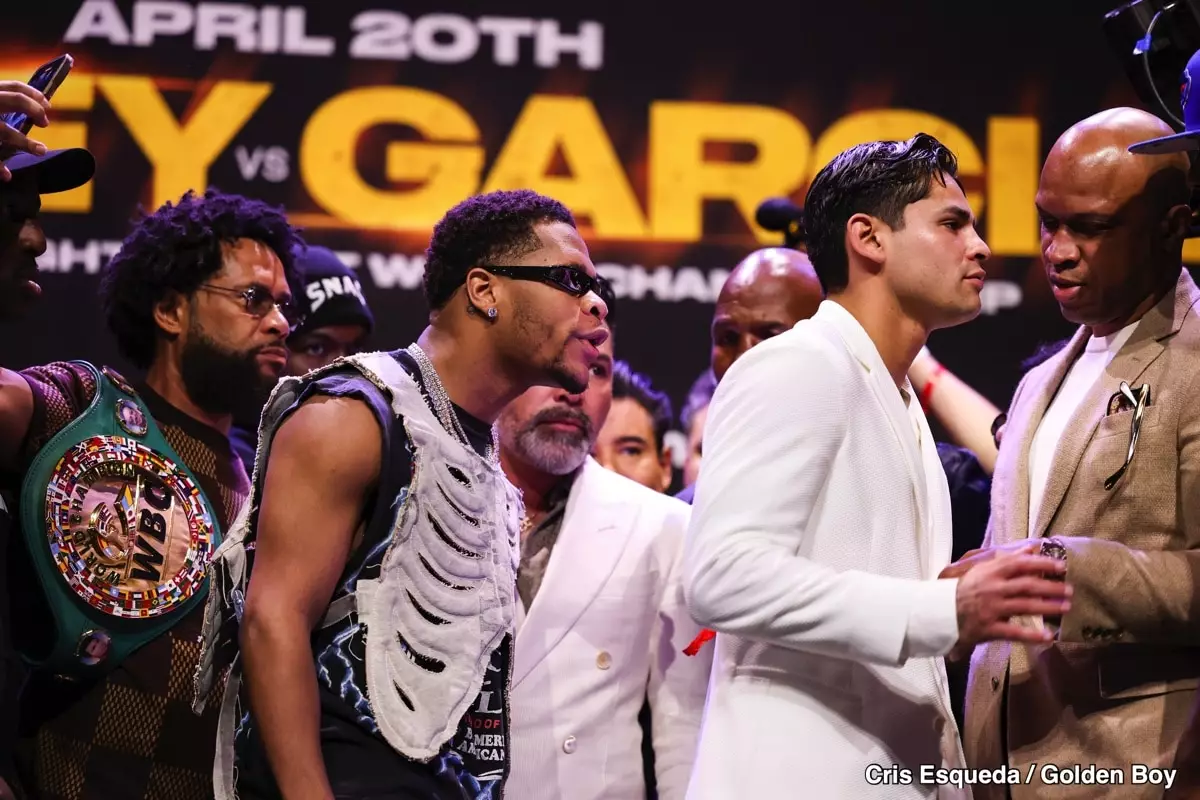In a surprising turn of events in the boxing world, Devin Haney has initiated a lawsuit against rising star Ryan Garcia, stemming from their bout on April 20th. This legal action introduces complex layers to an already contentious rivalry that saw Garcia emerging victorious in a match that has now been declared a no-contest by the New York State Athletic Commission. The allegations leveled against Garcia involve serious charges, including battery, fraud, and unjust enrichment. However, the implications of this lawsuit extend well beyond the immediate financial ramifications and strike at the very heart of competitive integrity in professional boxing.
Haney’s lawsuit arises from a match that concluded with significant controversy, not solely because of the outcome but also due to Garcia’s reported positive test for the banned substance Ostarine. Beyond the health risks associated with performance-enhancing drugs, the fact that Garcia weighed in at 3.5 pounds over the limit adds fuel to the fire of Haney’s grievances. Haney, who boasts an unbeaten record of 31-0 with 15 knockouts, claims both physical and emotional damages from his defeat. The psychological toll of a public loss can be immense, especially when exacerbated by alleged rule violations of an opponent.
This legal maneuver suggests a desperate bid for corrective justice that Haney’s camp hopes could recoup not only financial losses but also restore some semblance of his standing in the sport. The emotional and reputational damages sought by Haney highlight the personal impact of boxing outcomes on athletes’ careers—a factor that can often be overshadowed by the dramatic narratives of sporting events.
The lawsuit could dramatically alter Haney’s future in the ring, primarily because it distances him from the possibility of a beneficial rematch with Garcia. Logically, it appears counterproductive to seek a rematch for the sake of redemption while simultaneously chasing legal reparations. With Garcia reportedly having paid a fee for being overweight before his suspension for drug use, the financial stakes of the lawsuit are shrouded in uncertainty. One must question, what amount would Haney deem acceptable to forego the chance to reclaim his legacy in the ring?
Moreover, what does this mean for Garcia? The legal cloud casting a shadow over his career could affect his marketability and fan reception. Given that professional boxing is as much about business as it is about sport, any lingering doubts regarding his integrity could deter potential future opponents and sponsors alike. This dichotomy presents a disturbing scenario where both fighters stand to lose in the long run.
The reaction from boxing fans and commentators has not been gentle. Many have perceived Haney’s decision to sue as a sign of weakness rather than a justified response to perceived injustices. Social media platforms have erupted with commentary criticizing Haney’s inability to weather the storm of defeat gracefully. In the eyes of some critics, turning to the judiciary rather than seeking a direct rematch conveys an unsporting spirit that further tarnishes his reputation.
Furthermore, there is the underlying argument that the outcome of their bout was primarily influenced by the events of the evening, not necessarily the subsequent disputes concerning legality. Haney’s alleged failure to adapt mid-fight and his reliance on clinching as a defensive measure may have been critical factors contributing to his defeat—an outcome that could be seen as a reflection of his performance rather than inconsistencies on Garcia’s part.
As developments in this lawsuit unfold, Haney’s prospects seem precarious. Without a rematch on the table, and with the looming threat of a legal battle overshadowing his career, the once-promising trajectory of his boxing journey is at a critical juncture. This scenario raises a profound question: how much longer can Haney remain relevant if he continuously opts for courtroom battles instead of fists in the ring?
Opportunities to reclaim lost glory are often fleeting in professional sports, and hesitation to step back into the ring could solidify his decline in popularity. In the trap of a potentially lengthy legal battle, he risks becoming a footnote in boxing history rather than a celebrated champion. Ultimately, this lawsuit may unfold a narrative that serves as a cautionary tale of how personal integrity and professional pride must coexist within the fiercely competitive landscape of professional sports.

